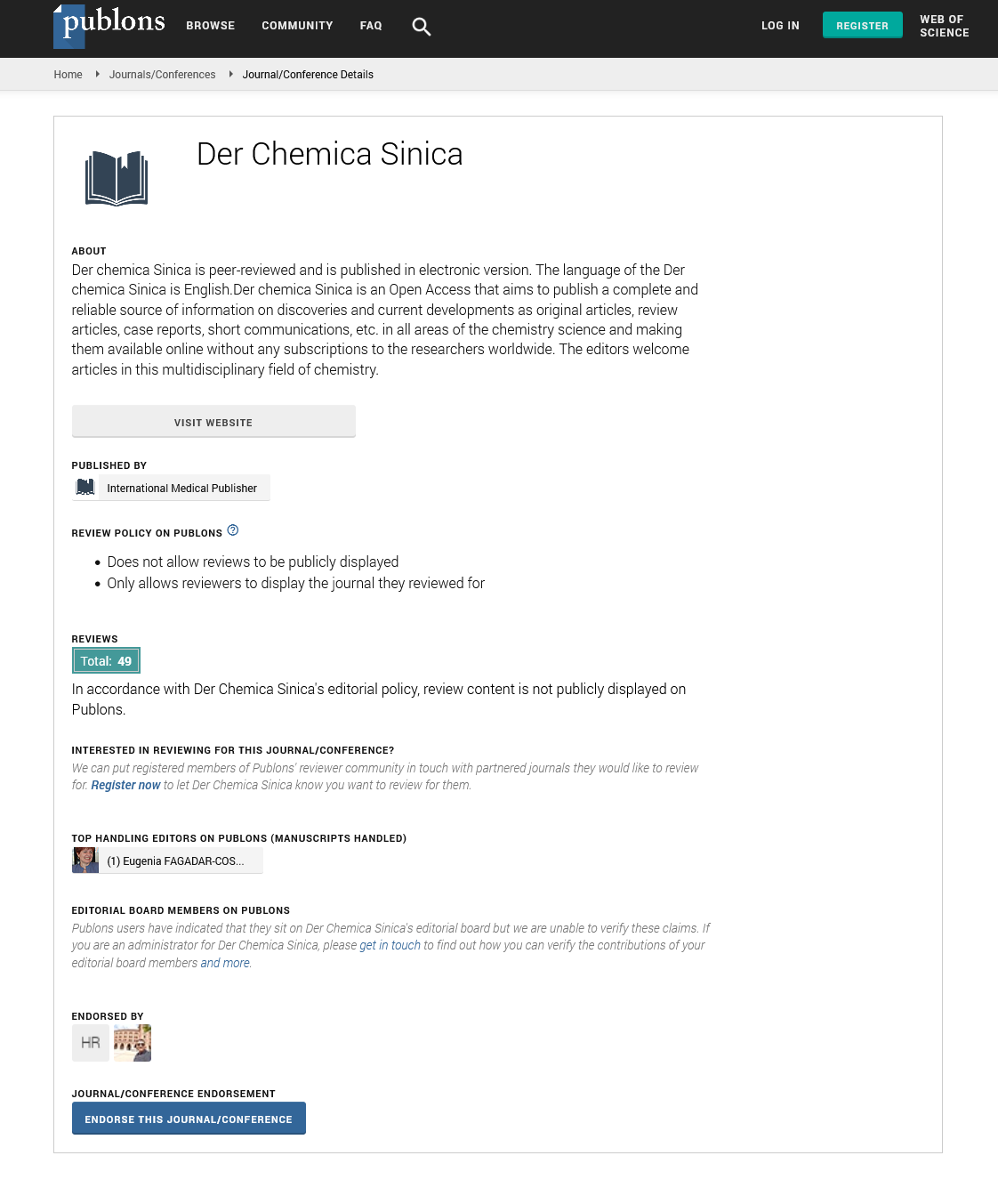ISSN : 0976-8505
Der Chemica Sinica
Abstract
Pharmacological investigation of methanol extract of Syzigum cuminii seeds and Crateva nurvula bark on the basis of antimicrobial, antioxidant and anti-inflammatory properties
Syzygium cumini (syn. Eugenia jambolana) commonly known as “Jamun” having promising therapeutic value with its various phytoconstituents such as Tannins, Alkaloids, Steroids, Flavanoids, Terpenoids, Fatty acids, Phenols, Minerals, Carbohydrates and Vitamins. Crateva nurvula (Varuna) is also known to be used in Ayurvedic medicine since ancient times in India as it also contains different phytochemical constituents. In the present investigation, seeds of Jamun and bark of Varuna were investigated for their antimicrobial, antioxidant and anti-inflammatory potential. Different solvent extracts of both the plant (s) parts were prepared according to decreasing polarity. The methanol extracts of both the plants were found to be most potent antimicrobial, antioxidant and anti-inflammatory agent in comparison to other solvent extracts. Methanol extracts (200 mg/ml) of Jamun showed maximum potency against Aspergillus niger but showed moderate activity against other pathogens. These extracts also showed predominant in vitro antioxidant activity and in vivo anti-inflammatory activity in carrageenan induced animal models at a dose of 120 mg/kg. Methanol extracts (200 mg/ml) of Varuna showed maximum potency against Bacillus subtilis, Salmonella typhii, Pseudomonas aeruginosa, Staphylococcus aureus and Candida albicans but showed moderate activity against other pathogenic microorganisms. These extracts were having predominant in vitro antioxidant activity and in vivo anti-inflammatory activity at a dose of 50 mg/kg in carrageenan induced animal models. The methanol extracts of the plants were also screened for their hemolytic activity against sheep erythrocytes but the extracts showed negative hemolysis
Author(s): Abhishek Mathur 1, Reena Purohit2, Deepika Mathur3, GBKS Prasad4 and V. K. Dua1
Abstract | PDF
Share This Article
Google Scholar citation report
Citations : 6019
Der Chemica Sinica received 6019 citations as per Google Scholar report
Der Chemica Sinica peer review process verified at publons
Abstracted/Indexed in
- Google Scholar
- Open J Gate
- Genamics JournalSeek
- China National Knowledge Infrastructure (CNKI)
- Directory of Research Journal Indexing (DRJI)
- Publons
- MIAR
- International Committee of Medical Journal Editors (ICMJE)
- Serials Union Catalogue (SUNCAT)
- Geneva Foundation for Medical Education and Research
- Secret Search Engine Labs
- Euro Pub
- CAS (Chemical Abstracting Services)
- University of Barcelona
Open Access Journals
- Aquaculture & Veterinary Science
- Chemistry & Chemical Sciences
- Clinical Sciences
- Engineering
- General Science
- Genetics & Molecular Biology
- Health Care & Nursing
- Immunology & Microbiology
- Materials Science
- Mathematics & Physics
- Medical Sciences
- Neurology & Psychiatry
- Oncology & Cancer Science
- Pharmaceutical Sciences
